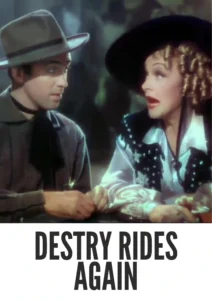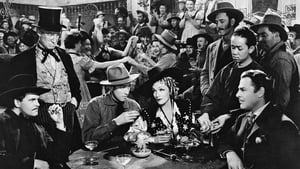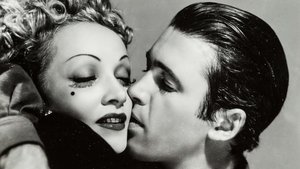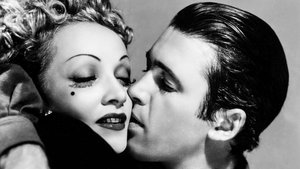Contact: [email protected]
Video Sources 0 Views
- Watch trailer
- Destry Rides Again


Synopsis
Table of Contents
ToggleReview: Destry Rides Again (1939) – A Classic Western Tale of Justice and Redemption

Introduction
“Destry Rides Again” (1939) is a timeless masterpiece that exemplifies the quintessential elements of the Western genre while offering a fresh and innovative take on the classic tropes of the frontier. In this review, we will explore the significance of this early colored film, examining its impact on audiences and its enduring legacy in the realm of cinematic storytelling.
Check The Full Colorized Movies List
Check Our Colorized Movies Trailer Channel
Understanding Destry Rides Again 1939: Director, Cast, and Genre
Directed by the legendary George Marshall, “Destry Rides Again” (1939) showcases his remarkable talent for crafting compelling narratives that resonate with audiences of all ages. The film boasts an ensemble cast led by James Stewart and Marlene Dietrich, whose electrifying performances breathe life into the colorful characters that populate the dusty streets of Bottleneck. Blending elements of action, romance, and comedy, “Destry Rides Again” (1939) transports viewers to a world where justice is served with a side of wit and charm.
Exploring the World of Destry Rides Again 1939: Plot and Characters
At its core, “Destry Rides Again” (1939) follows the journey of a pacifist sheriff, portrayed by James Stewart, who is tasked with restoring law and order to the lawless town of Bottleneck. Along the way, he forms an unlikely alliance with a fiery saloon singer, played by Marlene Dietrich, whose smoldering presence adds a layer of intrigue to the unfolding drama. As the two embark on a quest for justice, they encounter a colorful cast of characters, each with their own motivations and agendas, leading to a climactic showdown that will determine the fate of Bottleneck.
The Art of Film Colorization
Film colorization serves as a transformative tool that enhances the visual experience of classic movies, breathing new life into timeless stories and captivating audiences with vibrant hues. By digitally adding color to black and white films, colorization allows viewers to immerse themselves in the rich tapestry of cinematic worlds, exploring every nuance and detail with fresh eyes and renewed appreciation.
Early Colored Films: A Brief History
The history of colored films traces its roots back to the early days of cinema, with filmmakers experimenting with various techniques to add color to their creations. From hand-tinted frames to early Technicolor processes, the evolution of colored film has been marked by innovation and ingenuity, paving the way for the development of modern colorization techniques that continue to captivate audiences to this day.
Destry Rides Again 1939 and Its Early Colored Version
The decision to release “Destry Rides Again” (1939) in a colorized format was met with both excitement and trepidation. While some welcomed the opportunity to experience the film in vibrant color, others expressed concerns about the potential impact on its visual aesthetic. Nevertheless, the early colored version of “Destry Rides Again” (1939) offers viewers a fresh perspective on the timeless tale of justice and redemption, enhancing its emotional resonance and captivating audiences with its luminous beauty.
The Debate Over Film Colorization
The debate over film colorization continues to divide audiences and critics alike, with proponents praising its ability to breathe new life into classic movies and introduce them to a new generation of viewers, while detractors argue that it compromises the artistic integrity of the original work and diminishes its historical significance. As the debate rages on, filmmakers and audiences alike are left to ponder the merits and drawbacks of colorization in the ever-evolving landscape of cinema.
Examining Destry Rides Again 1939 as an Early Colored Film
As with any colorized classic, the impact of colorization on “Destry Rides Again” (1939) is a matter of personal interpretation. Some may argue that it enhances the film’s visual appeal and immerses viewers in its world, while others may feel that it detracts from the stark beauty of the original black and white version. Regardless of one’s stance on the issue, there’s no denying the enduring power of “Destry Rides Again” (1939) as a timeless Western classic that continues to captivate audiences with its thrilling action, memorable characters, and breathtaking cinematography.
Influence and Legacy: Destry Rides Again 1939’s Impact on Cinema
“Destry Rides Again” (1939) has left an indelible mark on the world of cinema, inspiring countless filmmakers and captivating audiences with its timeless tale of justice and redemption. From its unforgettable performances to its sweeping cinematography, the film continues to resonate with viewers of all ages, reaffirming its status as a beloved classic of the Western genre.
Director’s Cinematic Legacy: Beyond Destry Rides Again 1939
George Marshall’s influence extends far beyond “Destry Rides Again” (1939), with a diverse body of work that continues to captivate audiences around the globe. From “How the West Was Won” to “The Blue Dahlia,” Marshall’s films are celebrated for their gripping narratives, dynamic characters, and breathtaking visuals, solidifying his legacy as one of the preeminent directors of Hollywood’s Golden Age. Through his groundbreaking work, Marshall has left an indelible imprint on the world of cinema, inspiring generations of filmmakers to follow in his footsteps.
Themes Explored in Destry Rides Again 1939
“Destry Rides Again” (1939) explores a myriad of themes, from the quest for justice to the power of redemption in the face of adversity. Through its richly drawn characters and nuanced storytelling, the film invites viewers to ponder the complexities of human nature and the enduring struggle between good and evil. As audiences immerse themselves in the world of “Destry Rides Again” (1939), they are reminded of the universal truths that bind us together and the timeless values that shape our lives.
Reception and Controversy Surrounding Destry Rides Again 1939
Upon its release, “Destry Rides Again” (1939) received widespread critical acclaim, with many praising its gripping storyline, stellar performances, and stunning visuals. However, the decision to release the film in a colorized format sparked debate among purists, reigniting the age-old discussion surrounding film preservation and artistic integrity. Despite the controversy, “Destry Rides Again” (1939) remains a beloved classic that continues to resonate with audiences of all ages, reaffirming its status as a timeless masterpiece of the Western genre.
Where to Watch Destry Rides Again 1939 Online
For those eager to experience the timeless magic of “Destry Rides Again” (1939), the film is readily available on popular streaming platforms such as Netflix, Amazon Prime, and Hulu. Whether you choose to watch it in its original black and white format or the early colored version, “Destry Rides Again” (1939) promises to transport you to a world of adventure and intrigue, where justice prevails and heroes are born.
FAQs About Destry Rides Again 1939
Q: Is “Destry Rides Again” (1939) based on a true story? A: No, “Destry Rides Again” (1939) is a fictional tale crafted by screenwriters Felix Jackson and Gertrude Purcell, inspired by the works of Western author Max Brand.
Q: Who are the main actors in “Destry Rides Again” (1939)? A: “Destry Rides Again” (1939) features an ensemble cast led by the iconic James Stewart and the mesmerizing Marlene Dietrich, whose on-screen chemistry electrifies the screen with tension and passion.
Q: What awards did “Destry Rides Again” (1939) win? A: While “Destry Rides Again” (1939) did not win any major awards, it received critical acclaim for its gripping storyline, stellar performances, and stunning visuals.
Q: Why was “Destry Rides Again” (1939) released in a colorized format? A: The decision to release “Destry Rides Again” (1939) in color was made to introduce the film to a new generation of viewers and enhance its visual appeal for modern audiences. While the choice to colorize the film sparked debate among purists, it ultimately allowed “Destry Rides Again” (1939) to reach a wider audience and ensure its continued relevance in the annals of cinematic history.
Conclusion
As we reflect on the enduring legacy of “Destry Rides Again” (1939), let us celebrate its status as a timeless classic that continues to captivate audiences with its thrilling action, memorable characters, and breathtaking cinematography. Whether viewed in its original black and white format or the early colored version, “Destry Rides Again” (1939) remains a shining example of the power of cinema to inspire, entertain, and provoke thought.
Through its gripping storyline, stellar performances, and stunning visuals, “Destry Rides Again” (1939) invites audiences on a journey of adventure and intrigue, where justice prevails and heroes are born. As we revisit the dusty streets of Bottleneck and the colorful characters that inhabit its world, let us remember the enduring lessons of courage, honor, and resilience that “Destry Rides Again” (1939) imparts. In a world filled with uncertainty and chaos, the film serves as a beacon of hope and a reminder of the indomitable spirit of the human soul.













